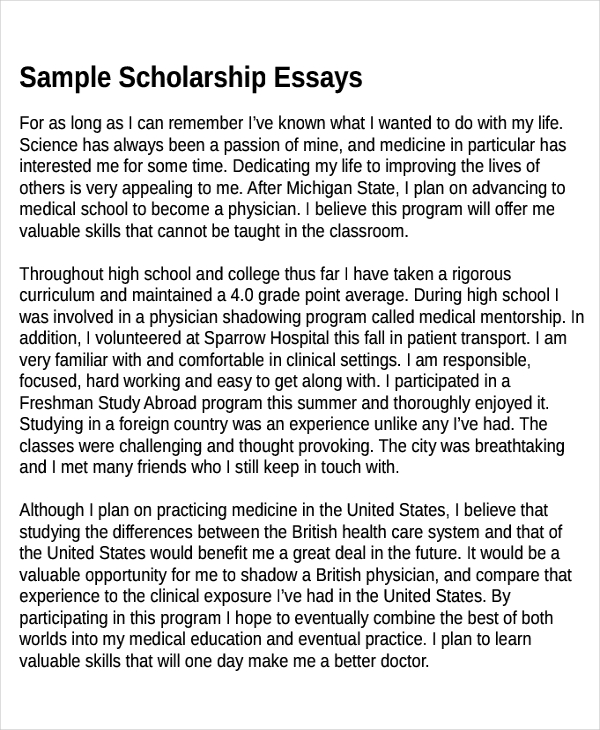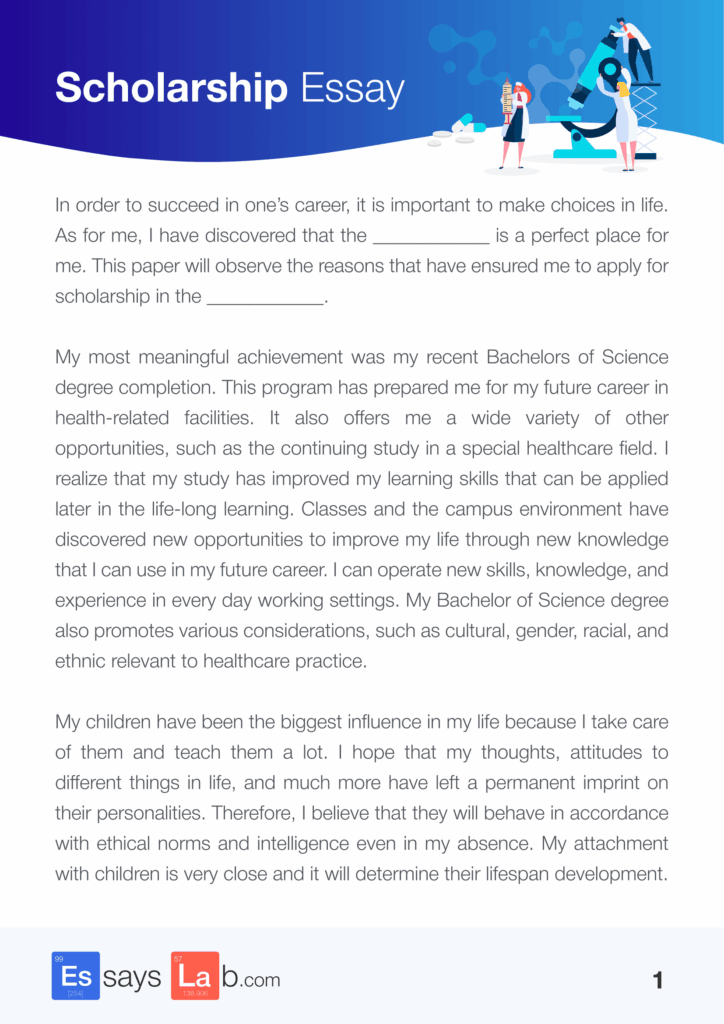From Blank Page to Scholarship Win: My Honest Guide to Writing Your Scholarship Essay
Remember that knot in your stomach? That tight, anxious feeling when you stare at a blank page, knowing that what you write could literally change your life? Yeah, I’ve been there. More times than I care to admit, especially when it came to writing my scholarship essays.
For years, the idea of applying for scholarships felt like trying to climb Mount Everest barefoot. The financial aid forms were daunting, the requirements seemed endless, and then… there was the essay. The scholarship essay. It felt like the final boss level, the ultimate hurdle standing between me and my dream of going to university without drowning in debt.
But guess what? I climbed that mountain. And I want to tell you how I did it, not as some academic guru, but as someone who struggled, learned, and eventually, won. This isn’t a guide written by some cold, calculating algorithm. This is my story, my insights, laid out for you, a beginner, to help you tackle your own scholarship essay with confidence.
The Big "Why" Behind That Scary Essay
I used to think scholarship essays were just another hurdle, a way for committees to weed out applicants. But as I wrote more and more of them, I started to understand their true purpose.
Think about it: thousands of students apply for the same scholarship. Most of them probably have similar grades, similar extracurriculars. So, how do you stand out? How do you show them you’re more than just a GPA and a list of achievements?
That’s where your scholarship essay comes in. It’s your chance to speak directly to the committee, to let your personality shine through, to tell them who you are beyond the numbers. They want to see your passion, your struggles, your resilience, and your vision for the future. They want to connect with you. My biggest "aha!" moment was realizing the essay isn’t about impressing them with big words; it’s about connecting with them through an honest story.
My First Encounter: The Blank Page Stare
My first attempt at a scholarship essay was a disaster. I sat there, fingers hovering over the keyboard, for what felt like hours. Nothing. My mind was as blank as the screen. I knew I needed money for tuition, but how do you turn that desperate need into something compelling?
Here’s what I learned from that frustrating experience and how I eventually broke through the writer’s block:
1. Don’t Start Writing Immediately (Seriously!)
This might sound counterintuitive, but trust me. Before you even think about sentences, brainstorm. Grab a notebook, open a new document, or even just walk around your room. Ask yourself:
- What are my biggest passions? What truly excites me?
- What challenges have I overcome? Big or small, personal or academic. How did they shape me?
- What are my proudest achievements? And more importantly, why are they proud moments? What did I learn?
- Who has influenced me? A teacher, a family member, a historical figure?
- What are my future goals? Both academic and personal. How will this scholarship help me reach them?
- Why this specific scholarship? What values do I share with the organization offering it?
I remember doing a mind map, just scribbling down words and connecting them. It looked messy, but it was like unlocking a vault of ideas I didn’t even know I had. This initial brainstorming is the foundation of a strong personal statement for scholarship.
2. Dig Deep into Your Experiences
The best scholarship essays aren’t just a list of accomplishments. They tell a story. Think about a specific moment, a turning point, or an event that taught you something valuable.
For one essay, I wrote about failing a math test in high school – not exactly a shining moment, right? But I focused on how I reacted. I talked about the frustration, the extra hours I put in, the tutor I found, and the ultimate satisfaction of finally understanding the concepts. It wasn’t about the failure; it was about my perseverance and my commitment to learning. That story showed resilience, a quality scholarship committees love to see.
Crafting Your Story, Not Just an Application
Once you have a few ideas, it’s time to start structuring your essay. Think of it like building a house – you need a solid foundation, walls, and a roof.
3. Hook Your Reader from the First Sentence
This is perhaps the most crucial part of your scholarship essay. The committee reads hundreds of essays. You need to grab their attention immediately.
- Start with an anecdote: A short, compelling story related to your theme. "The scent of freshly baked bread always reminds me of my grandmother and the first lesson she taught me about perseverance."
- Ask a thought-provoking question: "What does it truly mean to lead with empathy?"
- Make a bold statement: "I never thought a discarded piece of circuit board would change the trajectory of my life."
Avoid generic openings like, "I am writing to express my interest in the XYZ Scholarship." They’re polite, but they won’t make you stand out. My own hook usually involved a vivid image or a puzzling question that made the reader want to know more.
4. The Core Narrative: Challenge, Action, Outcome, Lesson
This is the meat of your essay. For each story you tell, follow this simple framework:
- Challenge: What problem or obstacle did you face? (e.g., struggling with a difficult subject, facing a personal setback, encountering an injustice).
- Action: What did you do about it? Be specific. Don’t just say "I worked hard"; say "I stayed up late researching, attended every study group, and sought help from my professor twice a week."
- Outcome: What was the result of your actions? (e.g., I passed the test, I helped my community, I developed a new skill).
- Lesson: What did you learn from the experience? How did it change you or your perspective? This is where you connect your personal story to your growth and future goals.
This framework helped me turn scattered thoughts into a coherent and impactful essay writing for scholarships.
5. Show, Don’t Tell
This is a classic writing tip, but it’s vital for winning scholarship essays. Instead of telling the committee you’re determined, show them your determination through your actions.
- Telling: "I am a very determined person."
- Showing: "After countless failed attempts, the robot finally moved an inch, and I knew every late night in the lab had been worth it."
See the difference? The second example paints a picture and allows the reader to infer your determination. Use sensory details, active verbs, and specific examples.
The Nitty-Gritty Details: What I Learned Along the Way
Beyond the storytelling, there are practical steps that can make or break your scholarship essay.
6. Research the Scholarship (Really, Really Research It!)
This is where many beginners stumble. Don’t write a generic essay and send it to twenty different scholarships. Each scholarship has specific goals, values, and an ideal candidate in mind.
- Read the prompt carefully: What exactly are they asking for? What’s the word count?
- Visit their website: What’s their mission statement? Who are their past recipients? What kind of impact do they aim to make?
- Tailor your essay: Weave in keywords or phrases from their mission. Show them you understand what they’re looking for and that you align with their values. If they value leadership, tell a story about your leadership. If they value community service, share your experiences there. This step is key for how to write a scholarship essay effectively.
7. Be Authentic, Be You
Don’t try to sound like someone you’re not. Don’t use overly complex vocabulary if it’s not natural to you. Scholarship committees can spot insincerity a mile away. Your unique voice is your superpower. My most successful essays were the ones where I felt I was just having a conversation on paper, being completely myself.
8. The Power of "So What?"
After every anecdote or achievement you mention, ask yourself: "So what?" Why is this relevant to the scholarship? How does it connect to your future goals or the values of the organization? Make sure your essay always circles back to why you deserve this specific scholarship and how you plan to use it to make an impact. This is crucial for your financial aid essay.
9. Edit, Edit, Edit (and Get Help!)
This cannot be stressed enough. A poorly edited essay, full of typos and grammatical errors, sends a message of carelessness.
- Read it aloud: You’ll catch awkward phrasing and repetitive sentences.
- Take a break: Step away from your essay for a few hours, or even a day, before reviewing it again. You’ll see it with fresh eyes.
- Get feedback: Ask a trusted teacher, mentor, family member, or friend to read your essay. Ask them: "Is my message clear? Is it engaging? Are there any errors?" Don’t be afraid of constructive criticism – it will only make your essay stronger. I had my English teacher tear apart my first few drafts, and honestly, it was the best thing for me.
My "Aha!" Moment and the Result
I remember one particular scholarship essay. The prompt was about "resilience." I thought about writing about a sports injury, but then I remembered a different, more personal struggle: adapting to a new school system after moving countries. It was tough, academically and socially. I talked about the feeling of being lost, the hours I spent catching up, the small victories, and how that experience taught me the importance of perseverance and seeking help.
I didn’t try to make it sound perfect or overly dramatic. I just told my honest story.
When the email arrived, saying I had been awarded the scholarship, I actually cried. It wasn’t just the money; it was the validation. It was proof that my story, my unique journey, resonated with someone. That blank page, which once felt like an insurmountable wall, had become a bridge to my future.
Your Journey Starts Now
Writing a scholarship essay can feel intimidating, but it’s also an incredible opportunity to reflect on your experiences, articulate your dreams, and showcase your unique potential. It’s not about being the "perfect" student; it’s about being the most authentic you.
Don’t let the fear of the blank page stop you. Start brainstorming. Find your story. Write from the heart. Edit diligently. And remember, every successful essay started with someone just like you, staring at a blank screen, wondering where to begin.
You have a story worth telling. Go tell it. Your future self (and your bank account) will thank you. Good luck on your scholarship success journey!



